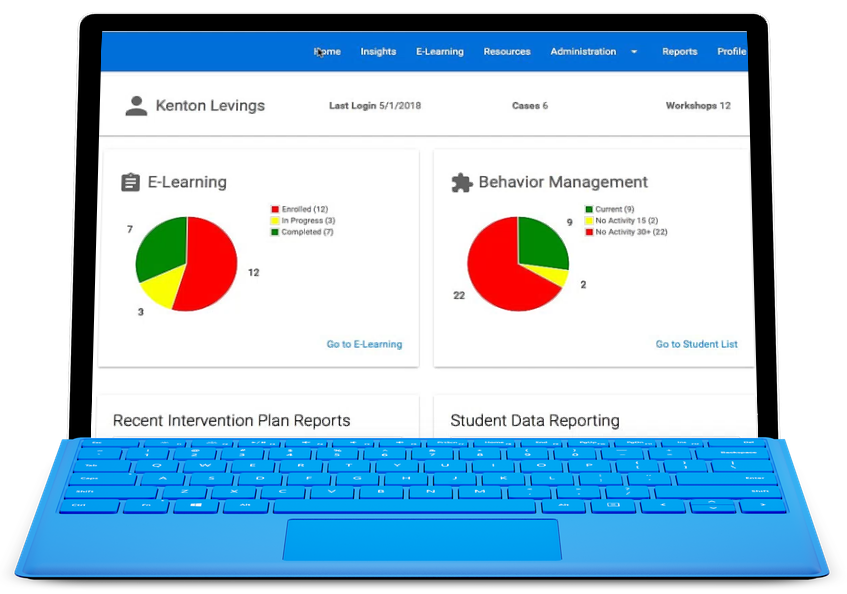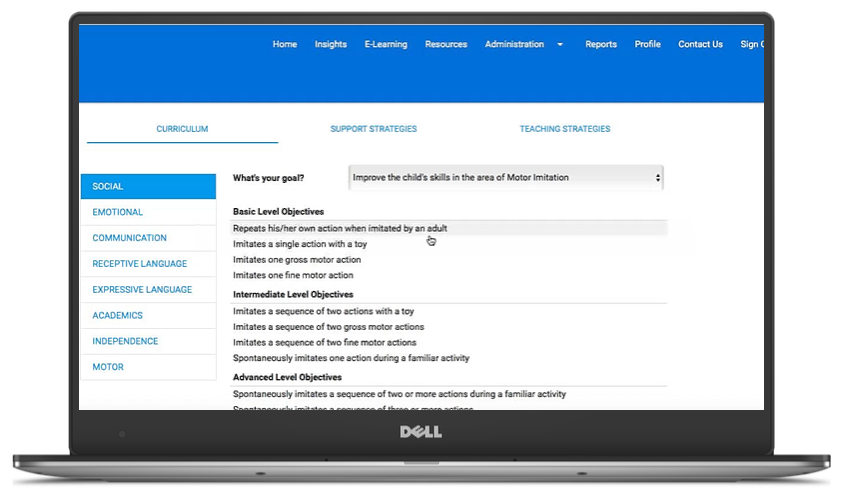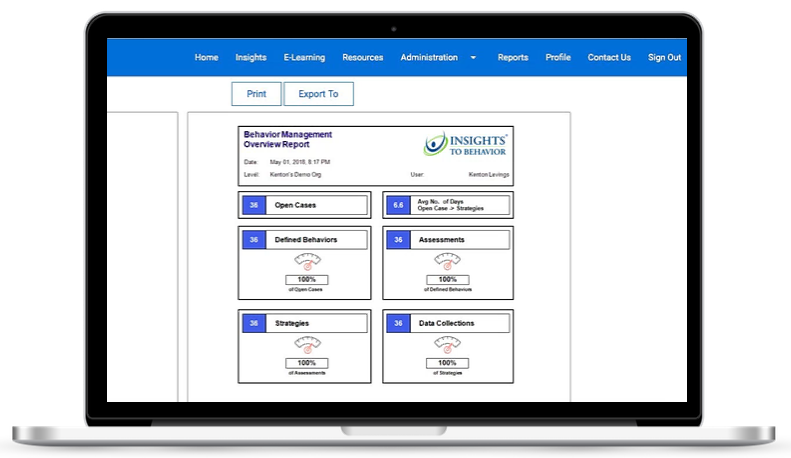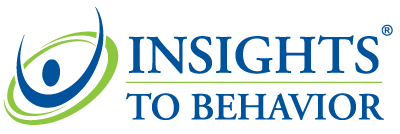Ready to see how we can transform your district? Request a demo.
Are you ready to begin creating legally defensible Behavior Intervention Plans in under an hour, complete with age-appropriate research-based strategies?
Request a personalized online demonstration with one of our team members. We can also provide you with custom pricing that fits your needs.
A new way to manage behavior.
Insights to Behavior empowers administrators, behavior specialists, and teachers with an unprecedented suite of tools to create, update, track, and report on Behavior Intervention Plans—whether it’s implemented in a single school or district-wide.


Research-based tools on-demand.
Access a library of video-based professional development skills training that’s age-appropriate and behavior specific. Keep students and teachers on track with resources for social and emotional support that improve a student’s attention, emotional regulation, adaptability, and social understanding.
Simpler. Faster.
Any authorized user begins a new plan by opening a case, then notify collaborators. The student’s team and administrators, can then collaborate to complete the project in a face-to-face meeting or from anywhere they can access the internet. Collectively they produce a detailed assessment for the student using the research-based wizard.


Go beyond the anecdotal: Assess and track behaviors and strategies to solve and prevent problems in the classroom.

Reduce labor-intensive demands on special education staff with web-based tools that improve productivity.

Replace spreadsheets and paper reports with at-a-glance dashboards and professional reporting.
Evaluate Insights to Behavior.
Experience how easy and rewarding it is to implement our web-based suite to develop Behavior Intervention Plans for your District’s K-12 schools. Request a 30-minute personalized online demonstration with one of our team members. We can also provide you with customized pricing that fits your needs.

Insights to Behavior is an exciting new web-based solution to help School Psychologists, Special Education Directors, General Education Teachers, Special Education Teachers and support staff to create and implement effective Behavior Interventions for “At-Risk” Tier Two students and Tier Three students that don’t require 1:1 support.
